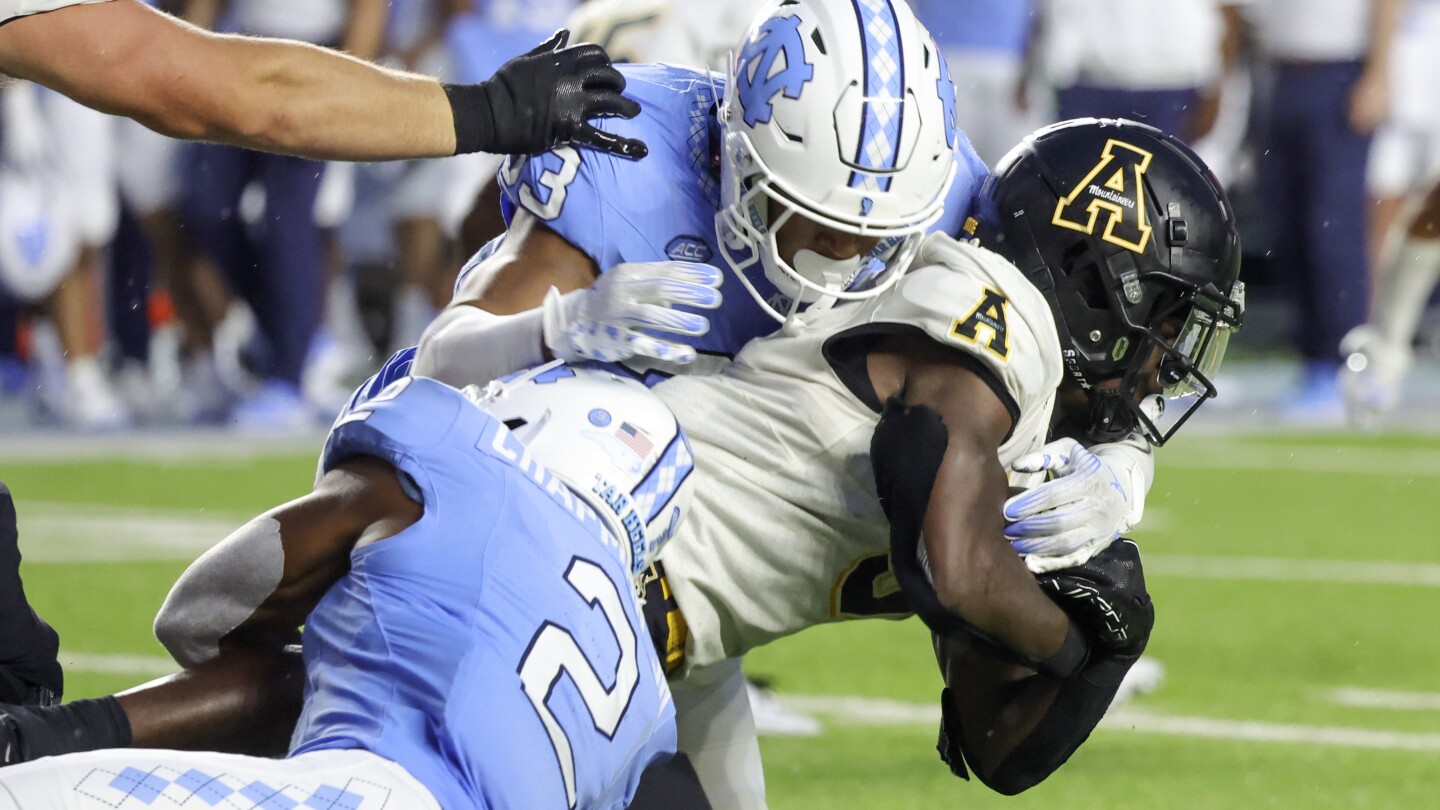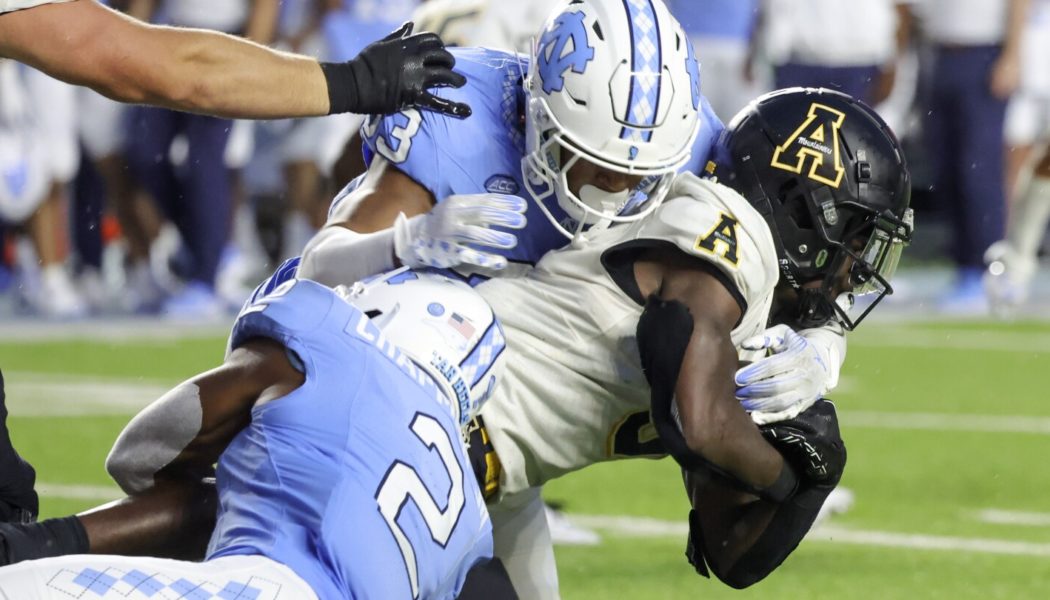
RALEIGH, N.C. (AP) — In a move reflecting volatile and changing times in college athletics, North Carolina state legislators advanced a bill Tuesday that would require the state’s two largest public universities to play each other annually in football and basketball and play three other top public system schools regularly.
Under the measure, which cleared the House committee on universities with no debate, the football and men’s and women’s basketball teams at the University of North Carolina at Chapel Hill and N.C. State University would be required to play each other at least once annually starting with the 2025-26 school year.
The bill also would direct the Wolfpack and Tar Heels to play East Carolina University, Appalachian State University or the University of North Carolina at Charlotte at least once every year in those sports.
UNC and N.C. State have deep rivalries going back over 100 years, reinforced through their Atlantic Coast Conference membership that ensures they play each other routinely.
But with the ACC’s evolution uncertain amid conference alignment and schools chasing more revenues, the potential for UNC and N.C. State joining different conferences is not so far-fetched. The ACC is facing uncertainty about its long-term future as it continues to face a growing financial gap behind the Big Ten and Southeastern Conference.
Meanwhile, ECU, Appalachian State and Charlotte also all play in the top Football Bowl Subdivision.
Alumni include some powerful legislators and bill sponsors who say holding such games with the top schools benefits college-town economies and challenged school athletic departments. More specifically, the bill says N.C. State and UNC would have to play at least one home and one away game against each of the other three schools every six years. Home and away games with the same school would alternate.
The Tar Heels and Wolfpack already schedule games against these schools occasionally. Football matchups between East Carolina and N.C. State in 2022 and Appalachian State and UNC in 2022 and 2023 were all nailbiters. But that willingness by the larger schools has not always been there.
“The fans want to see these games. The players want to play these games,” said bill sponsor Rep. David Willis, a Union County Republican who went to Appalachian State. “The coaches may have a little trepidation from time to time but …. I think the business case is there, and it’s exciting.”
Conference changes — like Texas and Oklahoma leaving the Big 12 for the Southeastern Conference and USC, UCLA, Oregon and Washington leaving the Pac-12 for the Big Ten — break up long-time conference scheduling partnerships.
The N.C. State and UNC women’s basketball teams will no longer play twice in the regular season after the ACC brought in California and Stanford from the Pac-12 and SMU from the American Athletic Conference to join this summer.
“Nobody knows really what’s going to happen with ‘super-alignment,’” Willis said, so requiring N.C. State and UNC to compete against each other if they end up in different conferences “just makes complete sense for the state of North Carolina.”
The legislation also would allow a game between schools to be held at a neutral site if the otherwise home team chooses. Willis said that UNC-Charlotte officials asked for the provision so that a game could be held at a venue such as Bank of America Stadium, where the Carolina Panthers play.
The bill still must clear two House committees before a floor vote. Willis said bill supporters have talked to the schools involved and have “received no negative feedback” so far. He said he’s also found support from officials in the state Senate, which would also have to approve such a mandate. Any final measure would go to Democratic Gov. Roy Cooper, a UNC graduate.
__
AP Sports Writer Aaron Beard contributed to this report.
Services Marketplace – Listings, Bookings & Reviews









